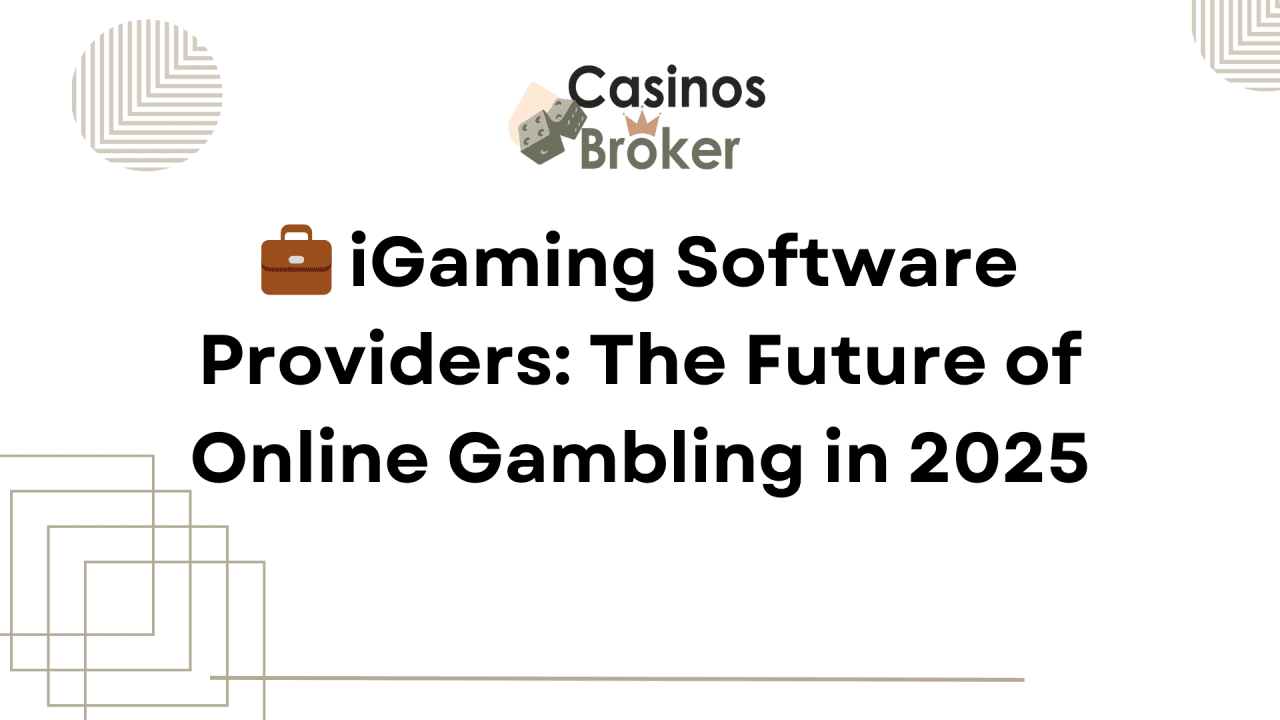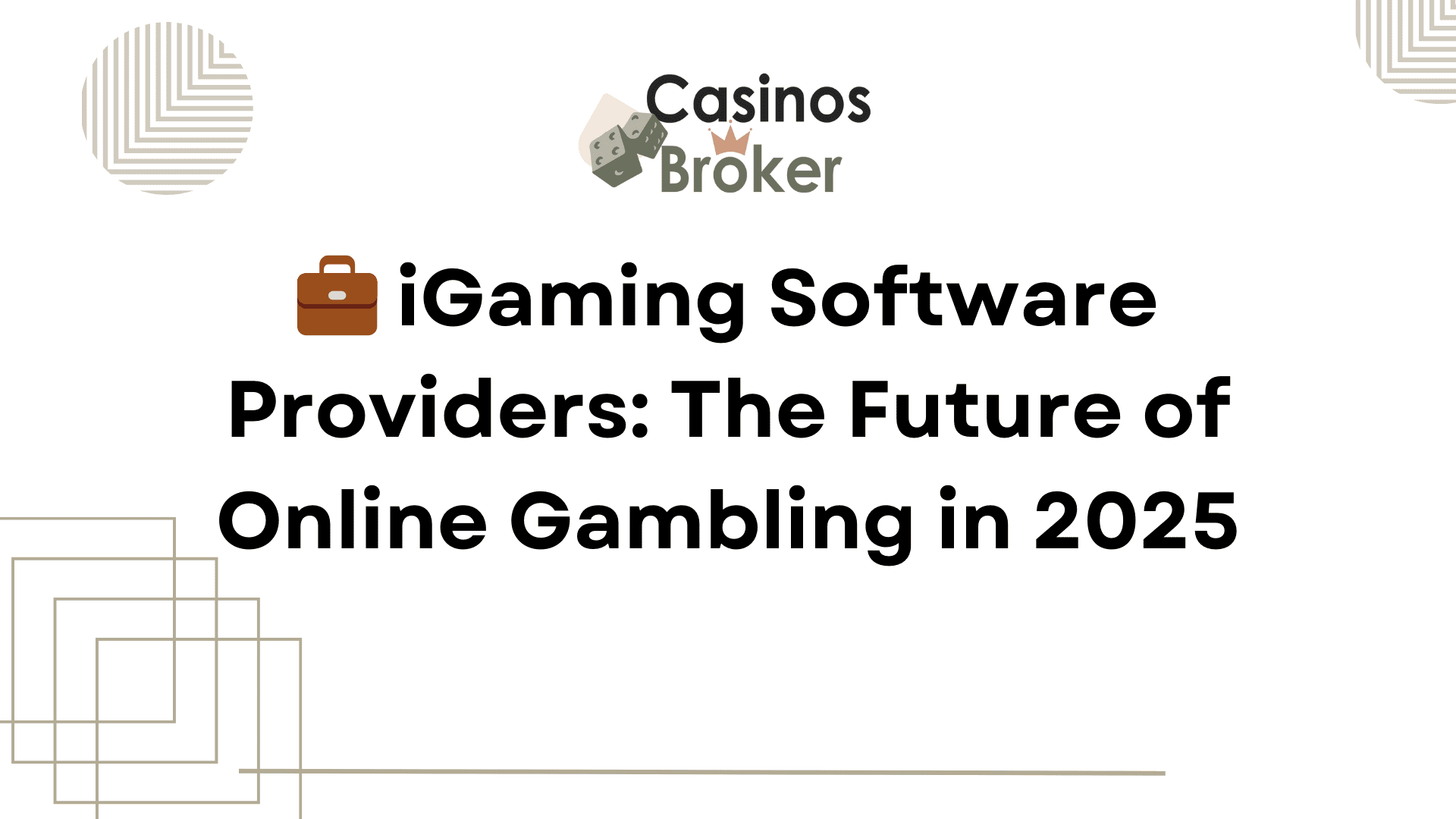Key Takeaways
- The global iGaming market is expected to reach $213.58 billion by 2028
- Mobile gaming accounts for over 56% of total gaming time globally
- Technological advancements like VR and AR are reshaping the industry
- Cryptocurrency adoption is increasing in online gambling platforms
- Regulatory changes are opening new markets for iGaming operators
- Data analytics play a crucial role in understanding player behavior
- The eSports betting market is projected to hit $24.19 billion by 2028
Introduction to iGaming Software Providers
In the ever-evolving world of online gambling, iGaming software providers are the unsung heroes behind the scenes. These companies are responsible for creating the games, platforms, and technologies that power online casinos, sports betting sites, and other digital gambling experiences. As we look ahead to 2026, the landscape of iGaming software providers is set to undergo significant transformations, driven by technological advancements and changing player preferences.
Learn more about the iGaming industry
The Current State of iGaming Software Providers
Today’s iGaming software providers are already pushing the boundaries of what’s possible in online gambling. They’re not just creating slot machines and poker games; they’re crafting immersive experiences that blend cutting-edge technology with traditional gambling elements.
Some of the leading providers in the current market include:
- Microgaming
- NetEnt
- Playtech
- Evolution Gaming
- Scientific Games
These companies have established themselves as industry leaders by consistently delivering high-quality games and innovative features. However, the rapid pace of technological change means that even these giants must continually adapt to stay ahead.

Emerging Trends Shaping the Future
As we look towards 2026, several key trends are likely to shape the future of iGaming software providers:
1. Virtual and Augmented Reality Integration
Virtual Reality (VR) and Augmented Reality (AR) technologies are set to revolutionize the online gambling experience. Imagine putting on a VR headset and finding yourself in a fully immersive casino environment, complete with realistic sounds and interactions. AR, on the other hand, could overlay digital elements onto the real world, allowing players to enjoy casino games in their own living rooms.
Explore the future of online casino gaming
2. Blockchain and Cryptocurrency Adoption
The use of blockchain technology and cryptocurrencies in online gambling is expected to grow significantly by 2026. These technologies offer increased transparency, faster transactions, and enhanced security for players. Software providers that can seamlessly integrate crypto payments and blockchain-based fairness systems will likely have a competitive edge.
3. Artificial Intelligence and Machine Learning
AI and machine learning will play an increasingly important role in personalizing the gaming experience. From recommending games based on player preferences to detecting problem gambling behaviors, these technologies will help create safer and more enjoyable gambling environments.
4. Mobile-First Development
With mobile devices accounting for over 56% of gaming time globally, software providers will need to prioritize mobile-first development. This means creating games and platforms that are not just mobile-compatible, but specifically designed for optimal performance on smartphones and tablets.
Discover the power of mobile in iGaming
5. Gamification and Skill-Based Elements
To appeal to younger generations, iGaming software providers are likely to incorporate more gamification elements and skill-based features into their products. This could include progression systems, achievements, and games that blend chance with player skill.
The Rise of Niche Providers
While the industry giants will continue to dominate, we’re likely to see a rise in niche software providers catering to specific market segments. These could include:
- Providers specializing in VR casino experiences
- Companies focused on creating blockchain-based gambling platforms
- Developers of skill-based gambling games
- Providers targeting specific geographic regions or cultural preferences
This diversification will lead to a more varied and competitive marketplace, ultimately benefiting players with a wider range of options.
Regulatory Challenges and Opportunities
As the iGaming industry continues to grow, software providers will need to navigate an increasingly complex regulatory landscape. By 2026, we can expect to see:
- More countries legalizing and regulating online gambling
- Stricter compliance requirements for player protection and responsible gambling
- Increased scrutiny of game fairness and randomness
Providers that can adapt quickly to regulatory changes and maintain high standards of compliance will be well-positioned for success.
Understand the importance of iGaming licenses
The Impact of Data Analytics
Data will continue to be a crucial asset for iGaming software providers. Advanced analytics will allow companies to:
- Personalize game recommendations and promotions
- Optimize game design based on player behavior
- Identify and mitigate problem gambling
- Enhance fraud detection and security measures
Providers that can effectively harness big data will have a significant advantage in creating engaging and responsible gambling experiences.
The Future of Game Development
By 2026, we can expect to see iGaming software providers pushing the boundaries of game development. This may include:
- Hyper-realistic 3D graphics and animations
- Interactive storytelling elements in slot games
- Live dealer games with enhanced interactivity
- Cross-platform gameplay experiences
The goal will be to create games that are not just gambling products, but immersive entertainment experiences that keep players engaged for longer periods.
Explore the world of casino games software providers
Collaboration and Integration
As the industry becomes more complex, we’re likely to see increased collaboration between software providers. This could take the form of:
- Integration of games from multiple providers on a single platform
- Partnerships between traditional providers and tech startups
- Collaborations with non-gambling entertainment companies
These partnerships will allow providers to leverage each other’s strengths and create more comprehensive offerings for operators and players alike.
The Role of Artificial Intelligence
AI will play an increasingly important role in the operations of iGaming software providers. By 2026, we can expect to see AI being used for:
- Game testing and quality assurance
- Real-time translation for global markets
- Customer support chatbots
- Predictive analytics for game performance
Providers that effectively implement AI into their processes will be able to operate more efficiently and deliver better products to market faster.
Learn about AI in iGaming
The Importance of Responsible Gambling
As the industry grows, there will be an increased focus on responsible gambling measures. Software providers will need to incorporate features such as:
- Self-exclusion tools
- Reality checks and time limits
- Spending limits and loss thresholds
- Age verification systems
Providers that prioritize player protection will not only comply with regulations but also build trust with players and operators.
The Evolution of Payment Solutions
By 2026, we can expect to see a diverse range of payment options integrated into iGaming platforms. This may include:
- Cryptocurrency payments
- Mobile wallet integration
- Biometric authentication for transactions
- Open banking solutions
Software providers that can offer seamless and secure payment experiences will have a significant advantage in the market.
Discover the future of payments in iGaming
Conclusion: Preparing for the Future
As we look ahead to 2026, it’s clear that the world of iGaming software providers will be characterized by rapid innovation and fierce competition. Providers that want to succeed in this dynamic environment will need to:
- Embrace emerging technologies like VR, AR, and blockchain
- Prioritize mobile-first development
- Focus on creating immersive and engaging gaming experiences
- Adapt to regulatory changes and prioritize responsible gambling
- Leverage data analytics to drive decision-making
- Collaborate with other industry players to create comprehensive solutions
By staying ahead of these trends and focusing on delivering value to both operators and players, iGaming software providers can position themselves for success in the exciting years to come.
Frequently Asked Questions
- What is an iGaming software provider? An iGaming software provider is a company that develops and supplies the software and games used by online gambling operators, including online casinos, sports betting sites, and poker rooms.
- How will virtual reality impact online gambling? Virtual reality has the potential to create immersive casino experiences, allowing players to feel as if they’re in a real casino environment from the comfort of their homes.
- Are cryptocurrency payments becoming more common in online gambling? Yes, many online gambling sites are now accepting cryptocurrencies due to their speed, low transaction fees, and increased privacy for users.
- What role does artificial intelligence play in iGaming? AI is used for personalization, fraud detection, customer support, and game optimization in the iGaming industry.
- How are mobile devices changing the iGaming landscape? With over 56% of gaming time spent on mobile devices, iGaming providers are prioritizing mobile-first development to create optimized experiences for smartphone and tablet users.
- What are some emerging trends in iGaming software development? Emerging trends include VR/AR integration, blockchain technology, AI-driven personalization, and the incorporation of skill-based elements in games.
- How important is responsible gambling for software providers? Responsible gambling is crucial for software providers, as it helps ensure regulatory compliance, builds trust with players, and promotes sustainable industry growth.
- What challenges do iGaming software providers face? Challenges include adapting to rapidly changing technology, navigating complex regulations, ensuring game fairness and security, and meeting evolving player expectations.
- How can iGaming software providers stay competitive? Providers can stay competitive by investing in innovation, prioritizing mobile development, focusing on player experience, and maintaining high standards of compliance and responsible gambling.
- What impact will increased regulation have on iGaming software providers? Increased regulation will likely lead to higher compliance costs but may also create new opportunities as more markets legalize online gambling.
Explore more about the iGaming industry






